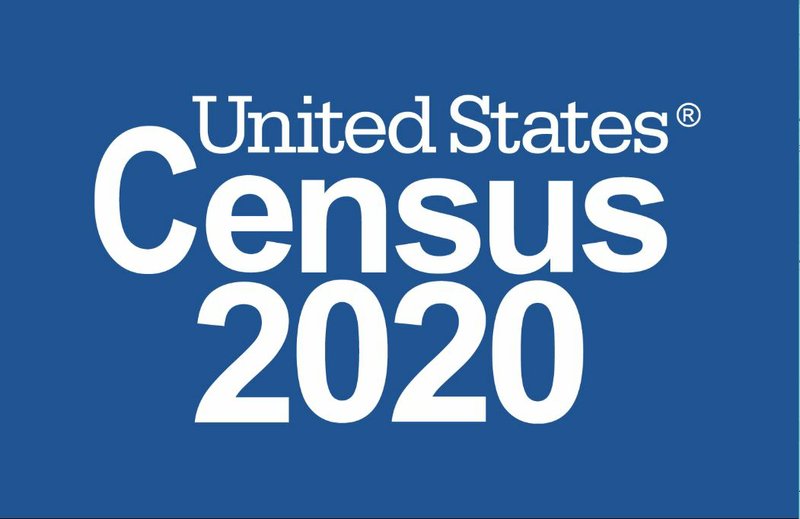Time is running out to respond to the 2020 U.S. Census and with the deadline just days away, city officials are making one final push to boost the city’s response rates.
The deadline to complete and submit Census forms is midnight Sept. 30.
As of Thursday, the city’s response rate hovered just above 60%.
Members of the El Dorado City Council lauded local residents who have responded to outreach efforts and turned in Census forms over the past few weeks.
However, they said there is plenty more work to do to in the waning days of the Census enumeration period.
Door-to-door visits are ongoing by Census-takers who are following up with residents who have not returned or may not have received forms that were sent by mail or responded by phone or online.
Additionally, the city has launched its own promotional campaign on social media and its two digital billboards and through outreach efforts that include the El Dorado Water Utilities, El Dorado School District, local churches and civic groups.
The EWU has mailed out reminders on customers’ water bills and designated an employee to assist residents in completing Census forms.
A Census/voter registration drive was held Sept. 13 at City Hall.
The El Dorado-Union County Chamber of Commerce has done its part by contacting chamber members and issuing reminders on the Go El Dorado website, which is owned by the city and managed by the chamber.
City officials have also distributed informational materials from the U.S. Census Bureau to emphasize the importance of an accurate count for El Dorado.
For instance, Mayor Veronica Smith-Creer and Council Member Judy Ward said Thursday that 4,200 Census-fact sheets were handed out to students in the El Dorado School District to take home to their families.
The sheets were drafted by Ward and tailored to El Dorado School District students.
One detail that was noted on the sheets is that each resident brings $3,300 to the community, or $33,000 per person for the next decade.
Council Member Willie McGhee previously explained that grants and turnback funds that are used for essential services, social service programs and community projects are based on population counts.
Population counts will help determine how more than $675 billion in federal funding is distributed to communities nationwide, McGhee said.
Services, programs and projects that are funded by federal dollars include Head Start, school meal programs, adult education, Historically Black Colleges and Universities (HBCUs), roads, housing assistance, emergency services, Medicare, health clinics, Supplemental Nutrition Assistance Program, preventive health services and minority-owned businesses.
The city’s population has been on the decline for decades, going from a high of nearly 25,300, as reported in the 1960 Census, to dropping below 20,000 in 2010.
Per the 2010 Census, the population for El Dorado was 18,884.
A follow-up count in 2012 placed the number of local residents at 18,491 and with the most recent population estimate coming in at 17,651, community leaders have said they want to make sure that the 2020 count for El Dorado is as close to 100% as possible.
McGhee has said an 85% response rate “is a good number” for El Dorado.
“We just want El Dorado to benefit and get the piece of the pie that we deserve and that we’re going to need to get our economy boosted again and help our people out — our businesses, our employees,” McGhee said during a regular council meeting Thursday.
Smith-Creer noted the 60.1% response rate — up slightly from a reported 59.7% two weeks ago — and city officials said they have a small window to encourage the other 40% of local residents to participate in the Census.
“We do have a few more days to get that number up. It is possible. It is doable,” the mayor said.
Following the meeting, McGhee delved deeper into the discussion, saying, “We’re just trying to get to these special groups — the homeless, the Hispanic community, people who are in jail and those with (criminal) records who feel like they can’t qualify to participate.”
“There are also those groups who never participate in the Census because they feel like the government is trying to get into their business and that’s not true. They’re just trying to see how many people are in your household,” he continued.
McGhee reiterated that if someone uses Census information for any other purposes than intended, the person faces a maximum sentence of six years in prison and a fine of up to $250,000.
To link up with the local Hispanic community, McGhee said Debra Joyner, partnership specialist with the Chicago Regional Census Center, which covers Arkansas, traveled to El Dorado Thursday to deliver informational and promotional materials that are written in Spanish.
He also said he distributed some of the materials at local Mexican restaurants.
“There were people there filling out (Census) forms on their phone,” McGhee said. “We’ve really got to push this thing down to the last minute because it’s so important to our community.”
For more information or to complete a Census questionnaire, call the Census Bureau at 1-844-330-2020, visit www.2020census.gov, stop by the El Dorado Water Utilities office at 500 N. Washington between 8 a.m. and 4:30 p.m., Monday - Friday, or call the utilities 870-862-6451 to request assistance. One can also call Smith-Creer’s office at 870-862-7911.
